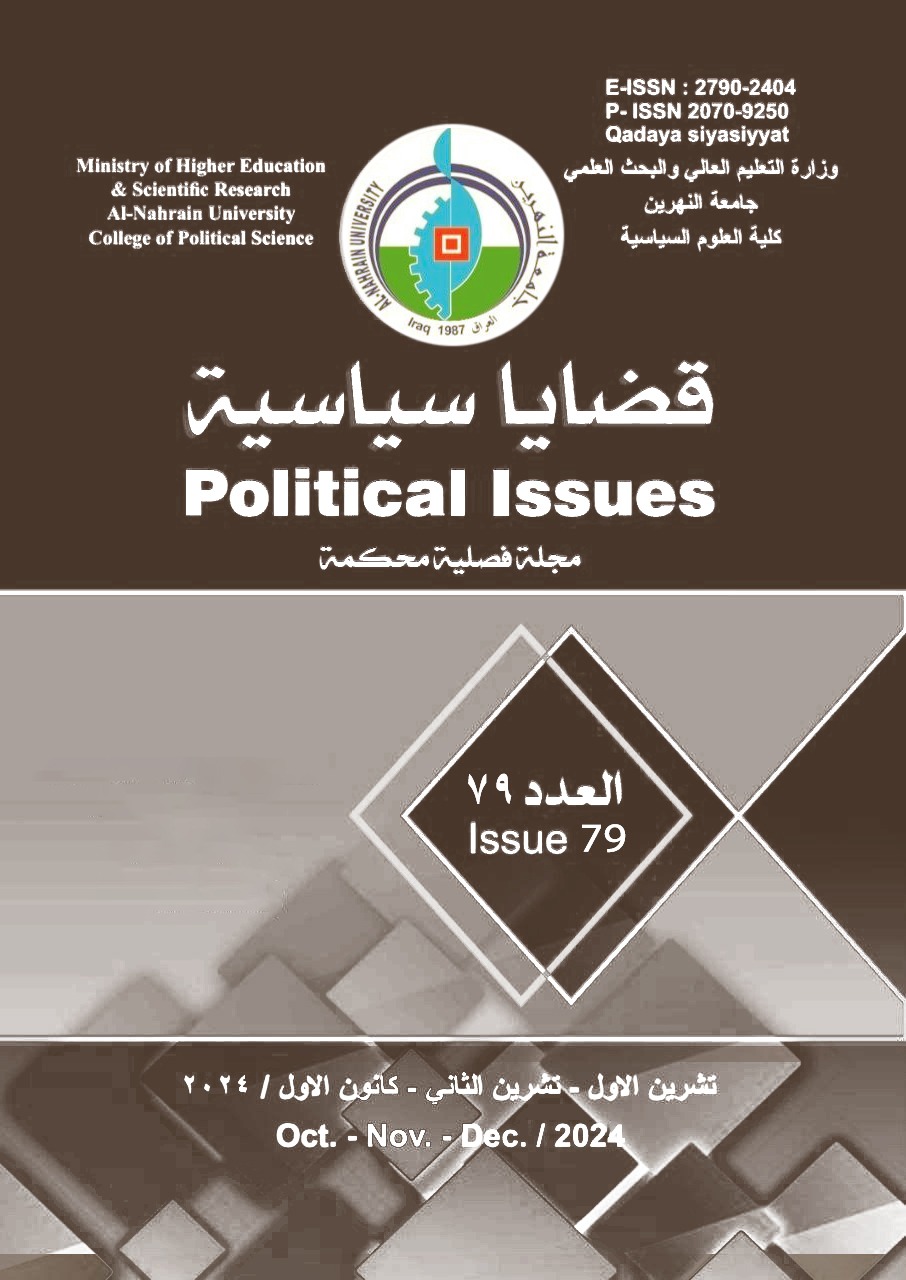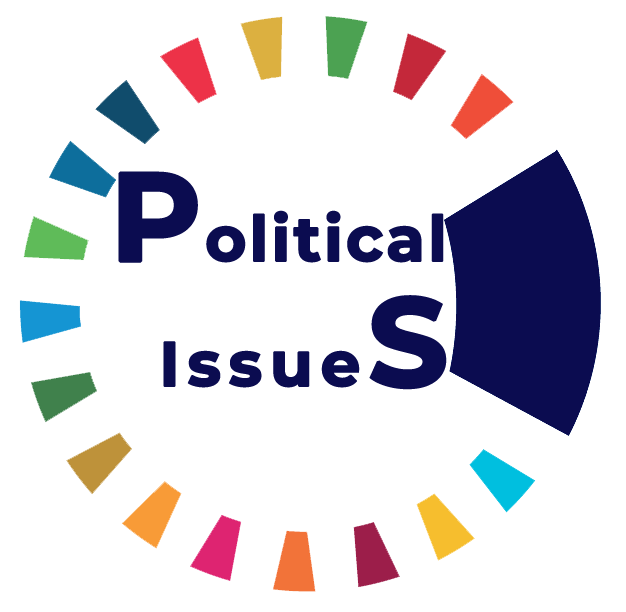The Shadow Diplomacy and National Security (Turkey as a Model in 2017 and Beyond)
DOI:
https://doi.org/10.58298/792024619Keywords:
National security, shadow diplomacy, international relations, foreign policy, special envoys, syber securityAbstract
Due to the importance of international relations, the escalation of crises, and the intertwining of interests in the international community, and the urgent need to negotiate within a narrow circle surrounded by secrecy and confidentiality in most cases, the concept of shadow diplomacy emerged, which is a relatively modern concept that was used in many American press reports during the rule of US President Donald Trump from 2017 to 2021, where the responsibility of this concept is determined by negotiating to resolve a specific and complex crisis facing the political system within the framework of international relations, such as preventing the outbreak of armed conflict and limiting its spread, or conveying talking points regarding some of the problems surrounding the position of the political system on a specific issue, and this task is often assigned to highly important and professional figures within the National Security Administration, and they are special envoys trusted by their governments to the relevant parties, countries or organizations, in specific and sensitive tasks that are mostly characterized by secrecy and confidentiality, and these tasks carry the characteristic of special and specific importance.
References
Ahmed Nouri Al-Naimi, Foreign Policy, Amman, Dar Zahran for Publishing and Distribution, 1st ed., 2011.
Ahmed Nouri Al-Naimi, The Decision-Making Process in Foreign Policy, Amman, Dar Zahran for Publishing and Distribution, 1st ed., 2011.
Ismail Sabry Muqalled, International Political Relations, A Study in Principles and Theories, Cairo, Academic Library, 1st ed., 1991.
Ismail Sabry Muqalled, International Political Relations, A Study in Principles and Theories, Cairo, Academic Library, Special Edition, 2001.
Ismail Sabry Muqalled, Decision-Making in Foreign Policy, Cairo, Al-Ahram Foundation, October 1968.
Alaa Jarar, Problem Solving and Decision Making, Cairo, Cairo University, Center for Development of Graduate Studies and Research, n.d., 2017.
Amin Huwaidi, Henry Kissinger and International Conflict Management, Beirut, Dar Al-Tali'ah, 1st ed., 1979.
Jeffrey Allen Bigman, Contemporary Diplomacy, translated by Mohamed Safwat Hassan, Cairo, Dar Al-Fajr for Publishing and Distribution, n.d., 2014.
Hassan Saab, Introduction to the Study of Political Science, Beirut, Dar Al-Ilm Lil-Malayin, 1st ed., 1979.
Hamdi Mustafa Al-Maaz, Administration Functions, Cairo, Dar Al-Nahda Al-Arabiya, 1st ed., 1984.
Sayed Amin Shalabi, Cairo in Contemporary Diplomacy, Alam Al-Kutub for Publishing and Distribution, 2nd ed., 1997.
Sabry Sarhan Al-Ghariri, The Effectiveness of the Political System and National Security: The Problem of Inputs and Outputs and Their Interactions, Emirates, Sharjah, Sharjah City for Publishing, Austin Macauley Publishing, 1st ed., 2022.
Abdul Rahman bin Muhammad bin Khaldun, Introduction to Ibn Khaldun, edited by Taha Abdul Raouf Saad, Cairo, Dar Shajarat Al-Durr, 1st ed., 2016.
Ali Abbas Murad, Security and National Security, Theoretical Approaches, Algeria, Ibn Al-Nadim Publishing, 1st ed., 2017.
Fadhel Zaki, Foreign Policy and Its Dimensions in American Politics, Baghdad, Dar Al-Hurriya for Printing, 1st ed., 1975.
Al-Fan Toffler, The Third Wave Civilization, translated by Issam Al-Sheikh Qasim, Libya, Misurata, Al-Jamahiriya House for Publishing, Distribution and Advertising, 1st ed., 1990.
Lloyd Jensen, Interpretation of Foreign Policy, translated by Muhammad bin Ahmad Faqi and Muhammad Al-Sayyid Salim, Riyadh, King Saud University, Deanship of Library Affairs, 1st ed., 1989.
Mazen Ismail Al-Ramadani, Foreign Policy, A Theoretical Study, Baghdad, Dar Al-Hikma, 1st ed., 1991.
Muhammad al-Sayyid Salim, Analysis of the External Study, Cairo, Professional for Media and Publishing, 1st ed., 1983.
Nasif Yousef Hitti, Theory of International Relations, Beirut, Dar al-Kitab al-Arabi, 1985.
Henry Kissinger, The World Order, Reflections on the Pioneers of Nations and the Course of History, translated by Dr. Fadil Jatkar, Beirut, Dar al-Kitab al-Arabi, 1st ed., 2016.
Ahmad Davutoglu, The Policy of Zero Problems with Neighboring Countries in the New Phase, Foreign Policy Magazine, March 1, 2013.
Ahmad Arif al-Kafarna, Factors Influencing Decision-Making in Foreign Policy, Al-Balqa Applied University, Issue 42.
Amin Huwaidi, The Art of Managing Arab Crises in Light of the Current World Order, Beirut, Al-Mustaqbal al-Arabi Magazine, Issue 225, November 20, 1997.
Basma Khalil Al-Awqati and Saad Al-Saeedi, The Role of Information in the Foreign Policy Decision-Making Process (Theoretical Study), Baghdad, University of Baghdad, College of Political Science, Journal of International Studies, Issue 50. 26. Turkish Intelligence Diplomacy, Developments in Roles and Status in the Context of a Moving World, Sina Center, November 2022.
Saad bin Alawi Al Hindi, The Skill of the Security Leader in Decision-Making in Emergency Circumstances, Riyadh, Naif Arab Academy for Security Sciences, n.d., 2000.
Saeed Al Hamad, Trump's Tweets, Al Ayam Newspaper, Issue 10760, September 24, 2018.
Dhurgham Abdullah Al Dabbagh, Secret Diplomacy, Sawt Al Arabiya Newspaper, February 28, 2024.
Abdel Moneim Masoud Nafin, Proceedings of the Egyptian-French Symposium entitled, The Phenomenon of Political Violence from a Comparative Perspective, Cairo, November 19-21, 1993.
Abdel Khabir Mahmoud Atta, The Hot Cold War in the Arab Region, Kuwait, Journal of Political Science and Law, Second Year, Issue Fifteen, July 1978.
Fadi Khalil and others, Trends New in Turkish Foreign Policy, Tishreen University Journal for Scientific Research and Studies, Volume 37, Issue 5, 2015.
Mamdouh Shawky, National Security and International Relations, Cairo, International Politics Journal, Issue 127, 1997.
Additional Files
Published
Issue
Section
License
Copyright (c) 2024 صبري سرحان الغريري

This work is licensed under a Creative Commons Attribution 4.0 International License.
This is an Open Access article distributed under the terms of the creative commons attribution (CC BY) 4.0 international license which permits unrestricted use, distribution, and reproduction in any medium or format, and to alter, transform, or build upon the material, including for commercial use, providing the original author is credited.






